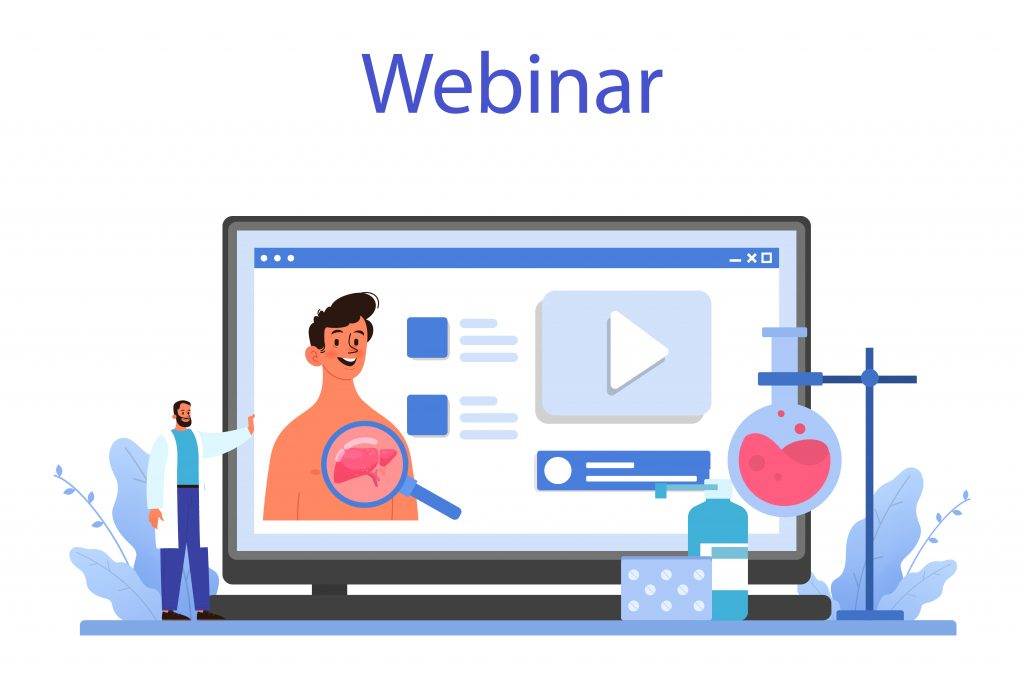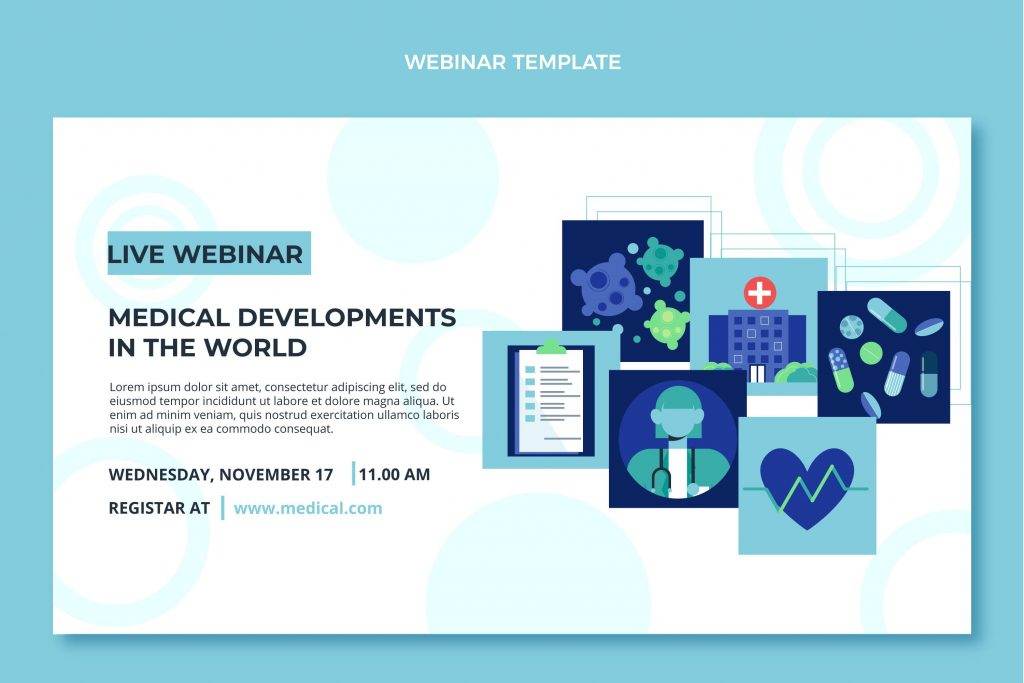Webinars play an essential role in the healthcare industry by providing a platform for healthcare professionals to share their knowledge and expertise with a broader audience. Webinars can be used for training purposes, continuing medical education (CME), and patient education.
Webinars can be used to discuss advances in medical research and treatment options, which can have a significant impact on patient outcomes. They can also be used to educate healthcare providers on new technologies, such as telemedicine and electronic health records.

- Educational webinars : These webinars focus on educating healthcare professionals and patients about specific medical topics and treatments. They may be led by medical experts, researchers, or clinicians.
- Product or service demonstrations : Healthcare companies may use webinars to showcase their products or services to potential customers. This type of webinar can be beneficial for both companies and potential customers, as it provides information about the product or service and opportunities to ask questions.
- Patient education webinars : These webinars are aimed at educating patients about their health conditions and how to manage them. They may cover topics such as healthy lifestyle choices, medication management, and disease prevention.
- Continuing medical education (CME) : These webinars are designed for healthcare professionals to earn credits towards their continuing education requirements. They may cover a variety of medical topics and may be accredited by professional organizations.
- Clinical trial webinars : Healthcare providers and pharmaceutical companies may use webinars to recruit patients for clinical trials and to provide information about ongoing studies.
- Telemedicine webinars : With the rise of telemedicine in healthcare, webinars can be used to train healthcare professionals on how to use telemedicine platforms and to educate patients about telemedicine services.

Here are some key advantages of implementing a LIMS
- Accessibility : Webinars allow healthcare professionals to provide educational content to a wider audience.
- Convenience : Webinars are easily accessible from any location with an internet connection, allowing for more flexibility in learning.
- Cost-effective: Hosting webinars is typically less expensive than hosting in-person events, as there are no travel or venue expenses.
- Collaboration : Webinars allow healthcare professionals to collaborate with other experts in the industry and reach a larger audience.
- Patient education : Webinars can be used to educate patients on a variety of topics, providing them with valuable information from the comfort of their own homes.
- Accessibility : Webinars allow healthcare professionals to provide educational content to a wider audience.
- Professional development : Webinars can serve as a platform for healthcare professionals to continue their education and stay current with the latest industry developments.
- Interactive content : Webinars can incorporate interactive elements such as polls, surveys, and Q&A sessions, facilitating engagement and participation.
Webinars in healthcare sites are beneficial in various ways. They allow healthcare professionals to reach a wider audience, are easily accessible from any location, and are cost-effective as they eliminate travel and venue expenses. They allow collaboration with other industry experts and data collection on engagement, interests, and needs. Webinars can also be used for patient education, professional development, and interactive engagement through polls, surveys, and Q&A sessions.